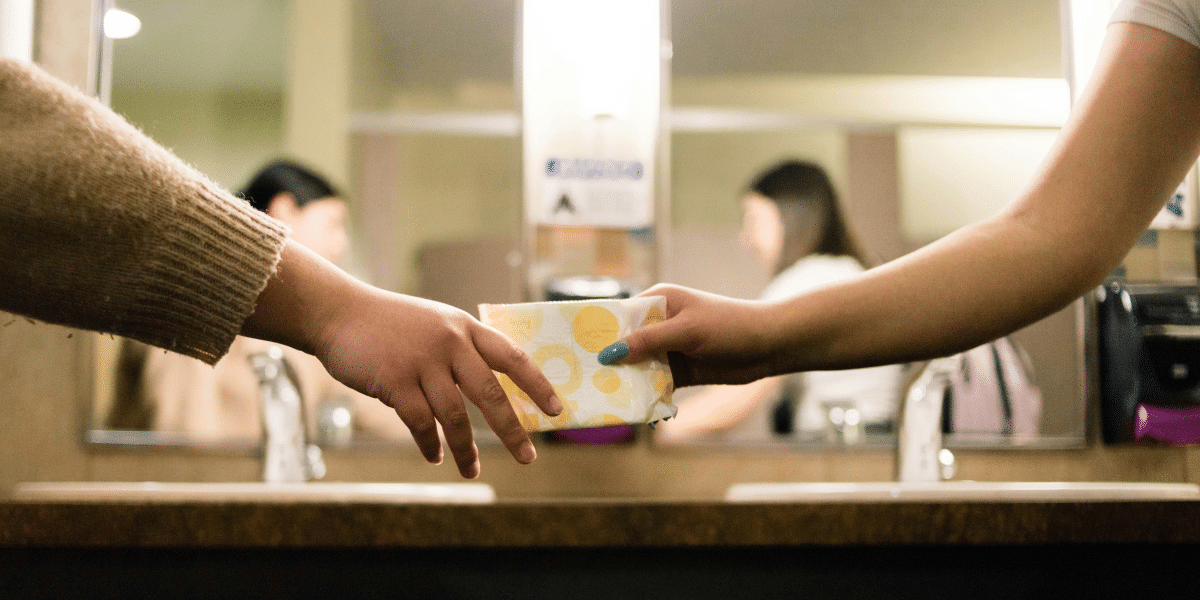As a society, we are waking up to the silent dangers lurking in everyday products, and with heightened awareness comes a push for change. Meg ferrigno, founder of MoonPads, is leading the charge in a quiet revolution—one that aims to shine a light on the potential dangers of conventional period products and offer healthy, planet-friendly alternatives. The stark reality, as meg unveils, is that menstruators spend about 3,500 days of their lives dependent on products that may contain health-harming toxins.
It’s no small matter. Your average pack of pads, meg points out, can contain the equivalent of 3-5 plastic bags’ worth of plastic. “Periods are an unpopular topic,” meg concedes. “And period waste even less so.” But these are exactly the conversations we need to be having, she insists, not only for our health but for the planet’s sake.
Science is increasingly linking toxins found in conventional pads and tampons with hormonal imbalances, reproductive harm, and even cancer. Dioxins commonly found in non-organic period products, are linked to endocrine disruption and an array of adverse health effects. “Menstruators do not want to be wearing toxic products,” meg affirms. And yet, the issue runs deeper—organic pads may boast of natural cotton, but they’re often still backed by plastics implicated in health and environmental risks.
With such daunting information, what can menstruators do? Enter MoonPads. “Menstruators want a product that won’t harm our bodies or the planet! MoonPads is poised to meet this demand by providing organic, biodegradable, compostable, and chemical-free menstrual products,” meg reveals. It’s a commitment that isn’t just a bullet point on packaging but the very ethos that MoonPads embodies.
MoonPads began as a heart-driven project providing compostable pads to nomads in Tibet facing period poverty. Witnessing the impact and recognizing a similar need beyond Tibet, meg established MoonPads as a B Corp in the United States, extending the reach of their mission on a buy-one-give-one basis
Transparency is key for MoonPads, and meg is passionate about helping menstruators make informed choices. Their range goes against the grain of the industry by offering truly organic, non-toxic, and environmentally friendly alternatives. Their products are a breath of fresh air for both consumers and the environment—a win-win for those looking to manage their periods responsibly.
Most importantly, MoonPads encourages an open dialogue about menstruation and menstrual waste. By breaking the stigma, they pave the way for broader acceptance of eco-friendly period products. It’s a conversation that could transform industry standards and reduce the environmental footprint of periods worldwide. Smashing stigma around menstruation is also a key part of ending period poverty, as persistent stigma is at the root of the silence shrouding the public health crisis.
MoonPads is more than just a brand—it’s part of a growing community that values social impact and sustainability. meg ferrigno stands as a pioneer within this community, a testament to the power of conscious consumerism and the importance of caring for our health as much as we care for the environment
Want to know more about MoonPads? Their presence is felt not only through the products they sell but through the conversations they ignite on social media. Follow them on Facebook and Instagram @ourmoonpads to become part of the movement. Connect with meg ferrigno directly on LinkedIn to join in the dialogue about a future where period care is safe for all parties involved—the menstruator, the community, and the planet.
The journey towards this future might seem long, but with passionate people like Meg leading the way and products like MoonPads setting a new standard, the destination is well within reach. It’s time to turn the tide, one cycle at a time.
Published by: Nelly Chavez


















